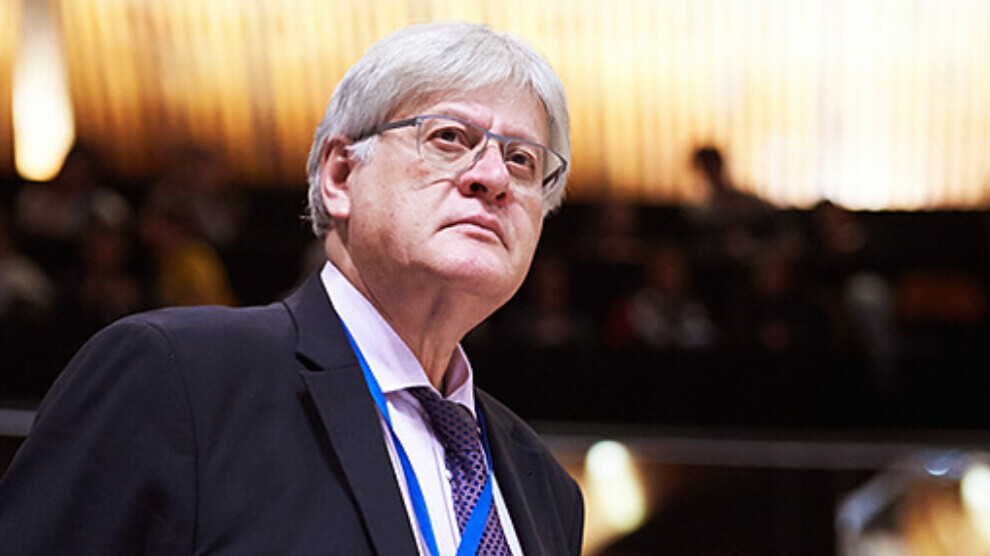Schennach: True peace requires full confrontation with Kurdish question
Council of Europe rapporteur Stefan Schennach said real peace demands deep-rooted change on all aspects of the Kurdish question.
Council of Europe rapporteur Stefan Schennach said real peace demands deep-rooted change on all aspects of the Kurdish question.

Stefan Schennach, Turkey rapporteur for the Monitoring Committee of the Parliamentary Assembly of the Council of Europe (PACE), shared his observations following their recent visit to Turkey. He emphasized that there is currently no peace process in the country but calls for peace must be taken seriously.
Schennach noted that during the visit, they held meetings with ministers, judicial authorities, and even spoke with prisoners. He recalled the questions raised during these meetings and said: “During our visit to Turkey, we met with ministers, various court officials, and, by coincidence, with prisoners. We talked about the so-called peace process and asked many questions: What does this process really mean? What does amnesty entail, and what does it cover? What legal changes are involved in this process?”
This is not just disarmament; it requires social transformation
The rapporteur emphasized that peace cannot be achieved merely through the laying down of arms and stressed the need for Turkey to adopt a comprehensive approach to the Kurdish issue. Schennach stated that fundamental changes are necessary in areas such as education, public administration, and social participation. He said: “If you are truly talking about a peace process, then you must address the Kurdish issue in its entirety, in kindergartens, in the education system, and in public administration. There are many elements involved in this process. This is not just about the Kurdistan Workers’ Party (PKK) laying down arms; that alone does not constitute peace. Frankly, I do not even know what name to give this.”
We referred to the Northern Ireland example
Schennach explained that they brought up the Northern Ireland peace process as a valuable model for Turkey, based on examples from Europe. He described how the Good Friday Agreement made social peace possible after years of armed conflict: “We brought up the example of the Northern Ireland Agreement, an agreement that brought real and lasting peace to a country where tens of thousands of people were either killed or imprisoned. The British government released prisoners, and through this process, what is known as the Good Friday Agreement was implemented.”
The rapporteur will present the report in October
Schennach emphasized that discussions on peace and democratic resolution within the Council of Europe are still at an early stage. To advance the process, a comprehensive report will be presented in October. He added: “We asked Turkish officials and various stakeholders what they think about this kind of approach. In my opinion, we are only at the beginning of this discussion, not at the end. In October, all of us will receive a report in which the rapporteurs will address this issue in greater detail.”